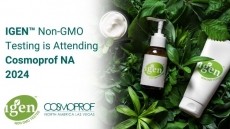FDA approves new OTC skin care ingredient to treat acne

Texas-based Galderma distributes adapalene, or Differin Gel 0.1%. And, it’s likely there will be quite a demand for the ingredient following the FDA’s announcement.
“Millions of consumers, from adolescents to adults, suffer from acne,” says Lesley Furlong, MD and deputy director of the office of new drugs IV in the FDA’s center for drug evaluation and research, in a press release about the approval. “Now, consumers have access to a new safe and effective over-the-counter option,” adds Furlong.
The ingredient, first approved as a prescription acne vulgaris treatment in 1996, has now been okayed as a once-a-day topical acne treatment for use by people 12 years old and up.
Safe and effective
The FDA took consumer studies and post-marketing data into consideration before approving Differin Gel as an OTC acne treatment. “Differin Gel’s safety and efficacy were initially established based on five clinical trials in people with mild to moderate acne,” according to the Administration’s press release.
“To support approval for OTC marketing, the data accrued from 1996-2016 on post-marketing safety, data from consumer studies (a label comprehension study, a self-selection study, and an actual use trial), and data from a maximal use trial were submitted.”
These studies apparently established that consumers can self-diagnose and treat acne (with Differin Gel), after consulting proper OTC labeling.
The Administration also determined that the level of drug absorption is at a safe level: "The maximal use trial, a study of absorption of the drug through acne-affected skin when applied daily over a large surface area (face, shoulders, upper back and chest), demonstrated that absorption is limited,” says the FDA, “thus supporting safe use of Differin Gel 0.1% by people using it OTC.”
Precautionary measures
There are of course guidelines for best results. The FDA makes a point to note that, “consumers should follow the Drug Facts label and consult with their health care providers if their symptoms do not improve.”
The retinoid is for external use and should be applied thinly and only once each day to areas affected by acne (but only such areas as are not cut, scraped, sunburnt, etc.).
Skin irritation is expected in the first weeks of use, according to the FDA’s press release. But people should stop use of the gel if that becomes severe, no improvement is seen within three months, there is any allergic reaction, or if they get pregnant.
















